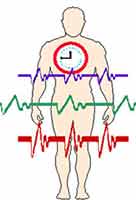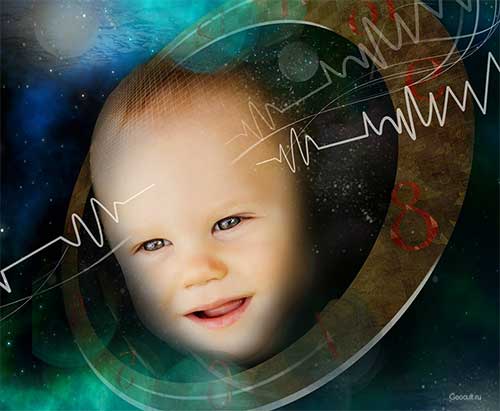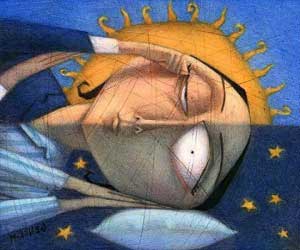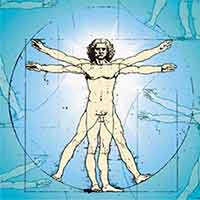 In the doctrine of biorhythmic cycles, critical days occupy a special place. The whole biorhythm theory aims to anticipate bad times in life and make the most of your resources on good days.
In the doctrine of biorhythmic cycles, critical days occupy a special place. The whole biorhythm theory aims to anticipate bad times in life and make the most of your resources on good days.
Critical days of human biorhythms are time intervals during which sinusoids – graphic reflections of the course of cycles – cross the zero line. At this moment, the transition from one phase of the biorhythmic cycle to another is carried out. In this case, it does not matter whether the transition from a positive phase to a negative one or vice versa took place. One way or another, any critical day is accompanied by unstable conditions, regardless of the area that it affects. To calculate your biorhythms, use our online biorhythm calculator .
Manifestations of critical days
The critical days of the physical biorhythm cycle are accompanied by a decline in strength, a feeling of a colossal lack of energy. The reaction decreases, the state of health worsens. These days there is an exacerbation of chronic diseases.
In the emotional cycle, the critical days of biorhythms are represented by an unbalanced mental state, the loss of the ability to adequately perceive the events taking place. It is at such moments that acute conflict situations, as well as situations of a criminal nature, most often arise.
Critical days of the intellectual biorhythm cycle are days when fundamentally wrong decisions are made, as well as unforgivable mistakes are made. Usually on such days people experience an inability to concentrate on anything. Solving the simplest tasks can take too much time and effort.
Statistics of critical days of biorhythms
 The study of statistics revealed the regularity of the occurrence of accidents on the critical days of biorhythms . The unstable conditions that accompany a person at the time of the transition of the cycle from one phase to another provoke various kinds of stressful situations. It is on these days that accidents, suicides and other negative incidents often occur. This information is supported by statistical facts.
The study of statistics revealed the regularity of the occurrence of accidents on the critical days of biorhythms . The unstable conditions that accompany a person at the time of the transition of the cycle from one phase to another provoke various kinds of stressful situations. It is on these days that accidents, suicides and other negative incidents often occur. This information is supported by statistical facts.
One of the scientists involved in research in the field of biorhythmology is Dr. Hans Schwing. His work, published in 1939, contains a description and analysis of 1000 accidents, 300 of which were fatal. These cases were recorded in the archives of Zurich. The study of these facts resulted in the following conclusions:
- 60% of cases occurred on critical days;
- 40% – on ordinary days;
It should be borne in mind that each month contains about six critical days, which means that the share of such periods in a person's life is only 20%.
Such research offers great opportunities for minimizing accidents at work and on the road. Many global companies use information about the biorhythms of employees in order to increase productivity and reduce the number of insurance claims.
Critical triplex
The most important unfavorable day of biorhythms in a person's life, not counting the moment of his birth, from which all three cycles originate, is the age of 58, 2 years (58 years and 66 days). At this moment, the critical days of all three biorhythms coincide. This moment is called the critical triplex. The onset of this day should be met with extreme caution, since the cycles of all three biorhythms lead a person into a state of instability. A complete breakdown in combination with mental imbalance and intellectual emptiness can lead to unpredictable consequences.
Double critical days
The combination of emotional and physical critical biorhythms days can also play a bad joke on a person. These days are very dangerous for people who drive cars: there is practically no reaction and the likelihood of an accident is high. Everyone should be aware of the timing of such moments in order to be especially careful.
Forecasting critical days
 Studying your own biorhythms , as well as their unfavorable days, you need to understand that there cannot be an absolutely clear definition of negative and positive moments. For example, if a person was born early in the morning or late in the evening, his biorhythmic cycles should be considered with a slight bias. Nevertheless, in biorhythmology there is something to be guided by.
Studying your own biorhythms , as well as their unfavorable days, you need to understand that there cannot be an absolutely clear definition of negative and positive moments. For example, if a person was born early in the morning or late in the evening, his biorhythmic cycles should be considered with a slight bias. Nevertheless, in biorhythmology there is something to be guided by.
Using the knowledge that the simplest schedule of biorhythmic cycles gives, one can confidently look into tomorrow, knowing what to expect. Predicting critical days of biorhythms, it is possible to predict with a high degree of certainty on which day it is better to refuse travel, make important decisions or other important events. For example, many of the world's grandmasters have relied on their biorhythms to determine the timing of the most important chess matches. There is no doubt that biorhythmology is the science of the future.
Share with your friends. +5 to Karma
Articles from the category:




















Comments: